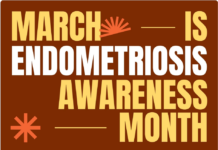During the COVID-19 shutdown, many people increasingly turned to technology for entertainment and information, a trend that raises concerns about an increase in technology addiction.
According to the Pew Research Center, about 30 percent of Americans are almost constantly online, and health officials are concerned about the amount of time children and adults spend with technology. China recently banned children from playing online games for more than three hours a week, internet addiction centers have been opening in the United States and Facebook has come under fire for teenagers’ obsessive use of its Instagram app.
“There is functional, healthy engagement with technology – ubiquitous and necessary in our everyday lives – and addictive use, and it can be difficult to know when that line has been crossed,” says Petros Levounis, chair of the Department of Psychiatry, associate dean at Rutgers New Jersey Medical School and author of Technological Addictions. “However, while obsessive use of technology may signal an addiction, it could otherwise be a sign of another mental health disorder.”
What does it mean to be addicted to technology?
While the majority of people who use technology will not have any problems – indeed, there are professional and recreational benefits from using electronics – a small percentage could develop an addiction and suffer consequences similar to that from substance abuse. In fact, studies have shown that as internet addiction worsens, so does the probability of developing a substance use disorder.
Using technology can become an obsession. People start engaging activities like online gaming, internet auctions, surfing the Net, social media, texting or cybersex and get caught up in the excitement. Soon, the focus shifts from generating feelings of pleasure and reward to being an activity they do to avoid feeling anxious, irritable or miserable.
How has the COVID-19 shutdown contributed to technology addiction?
We have noticed emerging addictions. For example, during the COVID-19 pandemic, cybersex has increased, with online dating apps, text chats and online pornography. Internet gaming, too, has exploded. One of the most concerning aspects with online gaming is that companies are now using psychology labs to maximize the effectiveness of their products in a way that is highly reminiscent of how the tobacco companies employed chemists to maximize their products’ addictiveness.
How do people know they’re addicted?
The two major red flags are: continued use of technology despite the knowledge of adverse consequences – people say “I know it’s bad for me, but I have to keep doing it” – and lying to people who are important to you about the frequency of the activity.
If you suspect you or someone you love is addicted to technology, what can you do?
Do not try to get the person into a rehab to be “cured.” Find a psychiatrist, preferably one who specializes in addiction, who can evaluate the person for a variety of disorders. The person might have depression, anxiety or a more serious psychiatric disorder like schizophrenia or bipolar disorder, which is masquerading as a technological addiction.
How can parents help their children to use technology wisely?
Parents need to be good role models and be consistent in setting rules. For example, it is not okay for parents to declare that dinner time is a “cell phone free” time and then proceed to check emails during meals. If parents take technology out of their children’s bedrooms to promote good sleep hygiene, they should abide by these rules as well.
Story Credit: /Newswise
Photo Credit: InspaMakers/Unsplash










































